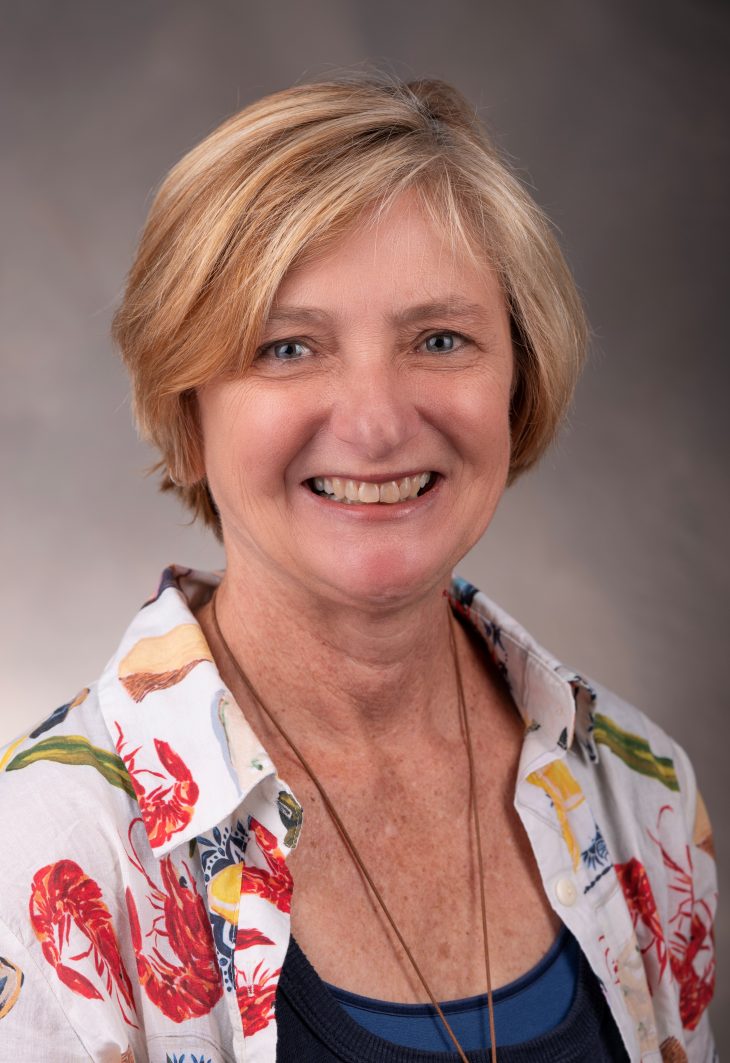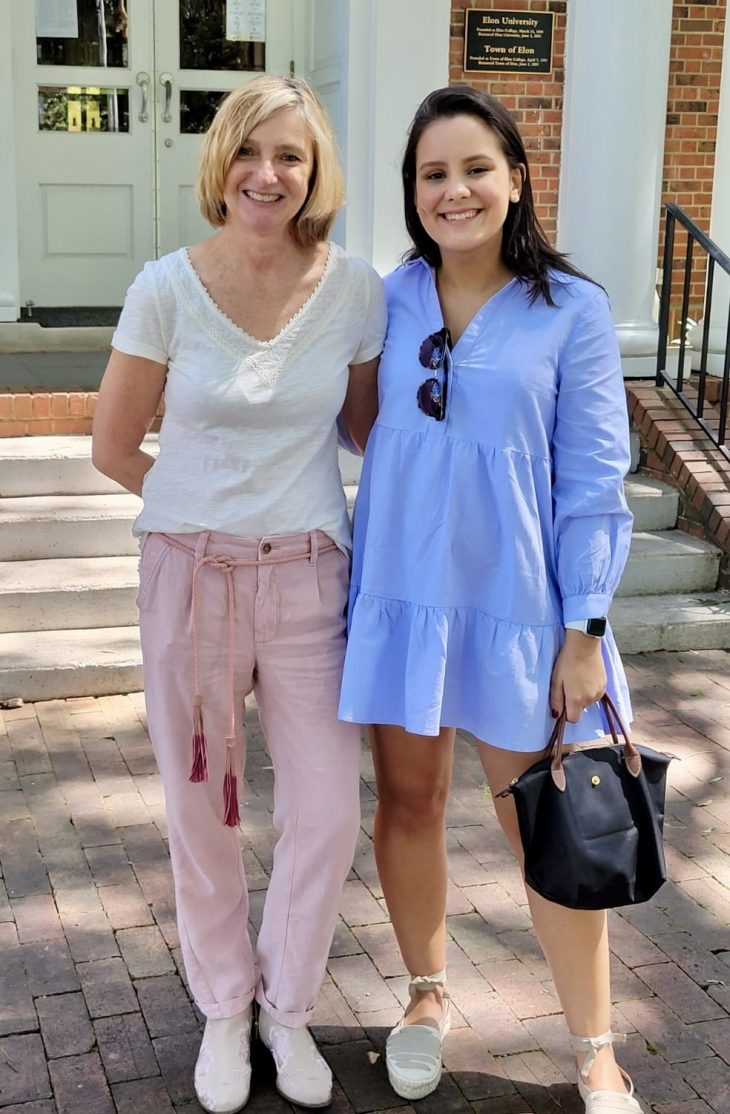Through the fellowship, the director of the Center for Research on Global Engagement will be advancing her work on mentored undergraduate research in global contexts.
Professor Maureen Vandermaas-Peeler has been named a senior fellow at the American Association of Colleges & University (AAC&U), a fellowship that will provide her the opportunity to advance her work on mentored undergraduate research in global contexts.

The year-long fellowship allows Vandermaas-Peeler to build upon her extensive work in the areas of both mentorship as well as global engagement by further exploring the overlap and synergy between the two. Through the fellowship, she will be working with research partner Dawn Whitehead, vice president of the Office of Global Citizenship for Campus, Community and Careers at the AAC&U.
Vandermaas-Peeler explains that there is extensive evidence of how a student’s participation in mentored undergraduate research can be beneficial, as well as how global engagement supports their growth and understanding. However, there is a gap in understanding the combined effect when that research takes place in global contexts.
“There is very little research that has studied the intersection of these high-impact practices,” Vandermaas-Peeler said.
The focus combines two areas of expertise and research for Vandermaas-Peeler, who as a member of the Department of Psychology at Elon has been a very active mentor to young researchers. Vandermaas-Peller serves as the director of the Center for Research on Global Engagement, which fosters high-quality research on global engagement and helps build national and international collaborations. She served as one of the leaders of a team that conducted an extensive study of the current landscape of mentoring in higher education and at Elon after the university was selected by the American Council on Education to participate in the inaugural cohort of the council’s Learner Success Lab. That team published its report in February 2022, with that work supporting Elon’s strategic focus on mentoring in meaningful relationships.
Vandermaas-Peeler believes there are opportunities to intentionally integrate global learning, mentorship and undergraduate research in a way that is mutually beneficial to the students, the mentors and those within the global community.
That can include the development of new skills, engagement with intercultural and civic learning along with an overall increase in intercultural knowledge.
“All of this work is trying to enhance the experiences our students are having and enhance opportunities for all of our students,” Vandermaas-Peeler said. “We want to provide faculty members with a better understanding of how to mentor our students to foster intercultural learning through these experiences.”

Vandermaas-Peeler has already been working with Elon colleagues and researchers from other institutions to fill in the gaps in research in this area. In September, Vandermaas-Peeler with Elon faculty members Eric Hall, Amy Allocco and Jen Hamel joined with Laura Cruz from Penn State University, Kate Patch from Grinnell College and Jacqueline McLaughlin from Penn State University-Lehigh Valley to publish an article in the New Directions for Teaching & Learning journal exploring the findings of their nationwide survey designed to illuminate how higher education institutions in the United States are supporting the practice of mentoring undergraduate research in global contexts.
The survey helped identify many of the salient practices in this area, such as setting clear expectations and encouraging students to share their findings, explore the range of ways students and mentors engage in this type of mentored research and whether faculty are receiving guidance and professional development to make these experiences more impactful and meaningful.
“There is good work happening, but all of us would like to have more professional development and opportunities to work with each other and learn from each other,” Vandermaas-Peeler said.
The authors offer that the survey findings support the idea that conventional mentoring models need to be adapted to better address the opportunities and challenges, and that perhaps a unique framework for mentored research in global contexts is necessary, one that is different from those for traditional undergraduate research or for global education. Part of that need is based on the range of experiences that fall under this umbrella. “Global” can mean local as well as international, and can involve a broad range of communities and community partners.
“We need some new models for thinking about these experiences,” Vandermaas-Peeler said. “Each model requires us to be nimble and to think about what students need.”
As a senior fellow with AAC&U, Vandermaas-Peeler will be exploring opportunities to share the work she is doing, both through presentations as well as publications. She’ll be working on developing educational materials about applying the mentored undergraduate research in global contexts framework, and leading workshops globally to help faculty and staff development in this area. She’ll be developing new connections and collaborations.
“We want to help people bridge the gap between theory and practice,” Vandermaas-Peeler said.


